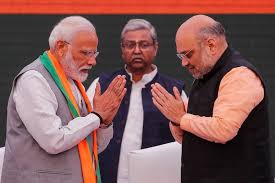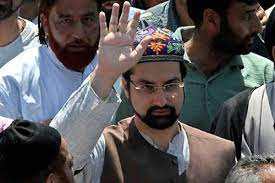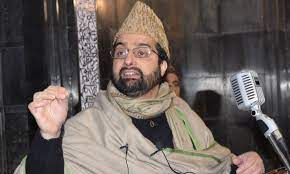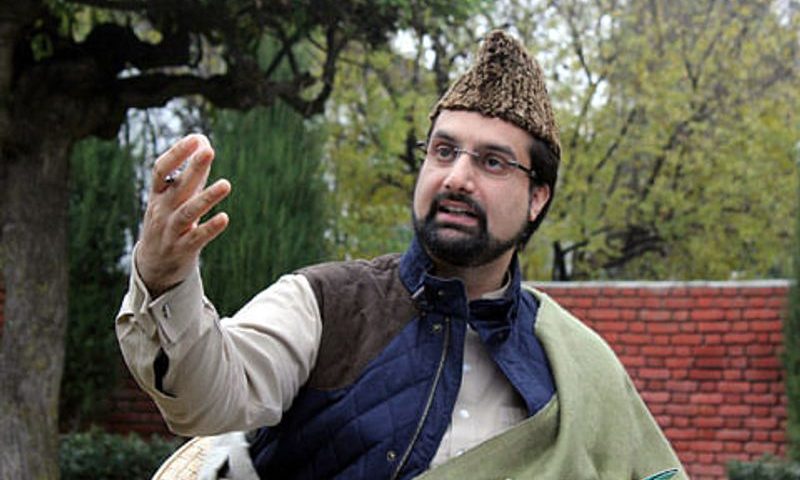The provocative statements made by top BJP leaders pertaining to the abolition of Article 35-A and Article 370, along with the usual rants of following a more hard and muscular policy in the state has led to the rise of anxieties within the state.
With the return to power of BJP under Narendra Modi with a much bigger mandate as compared to 2014, many new anxieties are arising in the country, especially due to what was witnessed during the last 5 years under Modi and also during the campaigning for this election. One such issue which warrants apprehension is the BJP’s policy towards Kashmir and the kind of provocative statements its top leaders like Narendra Modi, Amit Shah, Rajnath Singh, Arun Jaitley, Ram Madhav, and Ravi Shanker Prasad issued during the campaign as well as after the results. These provocative statements pertain to the abolition of Article 35-A and Article 370, along with the usual rants of following a more hard and muscular policy in the state where there is no place for any dialogue and possible resolution of the issue.
There is a feeling in the state that the re-election may just embolden the BJP to aggravate the already precarious situation in the state. After all, Kashmir has been the main focal point around which the Sangh Parivar’s discourse on nationalism revolves. And till now, it does appear that the saffron party has fully utilised it to reap the maximum electoral dividends and during its second term, it may just continue to use Kashmir in the same way or even more malevolently. People in Kashmir, in any case, were anxiously waiting for the results which have now largely dejected them as they fear an emboldened BJP government upping its ante and launching all out assaults against the special constitutional status of the state.
As part of its stated policy, the BJP rigidly refuses to acknowledge Kashmir as an issue and far from holding any dialogue, it only believes in unbridled state power for crushing the will of dissenting Kashmiris. In its previous stint, it was happy to enact its repressive policies in Kashmir which aggravated the situation further, and created more anger and violence. It also brought the poison of communalisation to the state by trying to divide Jammu from Kashmir on communal lines. BJP’s communal overture in the state and at the national level is also one of the contributing factors towards the increasing radical tendencies among the Kashmiri youth. The state is in ruins now, and its people angry and completely disenchanted from the rest of India. More significantly, the Sangh Parivar now wants to reorient the complex question of Kashmir’s association with India. It must be understood that the Sangh Parivar does not respect constitutional republicanism and the idea of secularism—two ideals which define the relationship between India and Kashmir. But this will inevitably have a complete bearing on the question of India’s association with Kashmir. BJP’s assaults on the special constitutional status of the state in the form of abrogating Article 35-A and Article 370 have to be seen in this context.
It is worth remembering that Article 35-A entitles the state of J & K to define its permanent citizens to confer on them “special rights” for government jobs, acquisition of immovable property, settlement in the state or rights to scholarship or other forms of government assistance. Article 35-A is based on the state subject law framed by Dogra ruler Maharaja Hari Singh in 1927 and finalised in 1932 after vigorous demands, made in particular by the Dogras of Jammu and Pandits of Kashmir to reserve all the state government jobs for the residents of the state and deny the same to people from outside. The Maharaja’s administration used to employ a number of educated persons from the neighbouring Punjab and some other states to run the state administration. The local residents were apprehensive of the fact that their right to jobs and own land/property would be grabbed by the non-state subjects.
It is crucial to mention that the accession of J&K to the Indian Union was made under very unique circumstances unlike other states; only three subjects were acceded to India – external affairs, defence and communication while on all other subjects, the ruler of the state was supposed to maintain his sovereignty in and over the state by virtue of para (8) of the Instrument of Accession. The terms of the Instrument of Accession were accepted and adopted by the Constituent Assembly by incorporating these terms in the Constitution of India through Article 370. The 1952 Delhi Agreement also laid out that all the “state subject” laws framed by Dogra rulers in the state including the state subject law of 1927 will continue. To formalise and further safeguard the “state subject” law and not to make it constitutionally vulnerable, the president of India issued an order on May 14, 1954, which, among other things added Article 35-A to the constitution in order to implement the Delhi Agreement of July 1952. This Article is not an isolated law; it is in fact an extension of Article 370 due to its saving clause which protects certain existing laws in force in the state of Jammu and Kashmir with respect to the definition of permanent residents.
The fears of an all-out assault on the special status of the state were already borne when the BJP formed governments both at the Centre and state in 2014. And these fears slowly began to appear true in the way leaders of the Sangh Parivar celebrated the extension of the Goods and Services Tax in the state along with the Statistical Bill in 2017. For BJP leaders like Jitendra Singh, Sat Sharma, and Ram Madhav, it was only a ‘beginning’ in the course of a full integration of the state to the union of India. Perhaps, the most significant statement had come from a senior minister like Arun Jaitley who invoked Shyama Prasad Mukherjee’s slogan of “Eik Vidhan, Eik Pradhan, Eik Nishan” as coming to its fruition. For Sangh Parivar, it was a matter of joy and jubilation as a course was being set for the demolition of Article 370. It is also worth mentioning that the case pertaining to the Article 35-A is already pending in the Supreme Court and the matter is already a sub-judice. Yet, the BJP leaders and spokespersons are repeatedly bragging of abolishing it which is not only tantamount to interference in judicial matters, but also reveals the intentions of BJP vis-à-vis J&K. The petition in the Supreme Court on Article 35-A has been filed by an organisation linked to the Rashtriya Swayamsevak Sangh. In its previous stint, the BJP government refused to file a counter-affidavit in the Supreme Court for dismissing the petition as the governments before had done.
One wonders, is this (the complete abrogation of Article 35-A and Article 370 and paving the way for settling of non-state subjects in the state) the “permanent solution” of Kashmir issue that Rajnath Singh was talking about some months ago? If it is indeed the ‘solution’ then one fears that a big apocalypse is in the offing and that Kashmir’s dissociation with India might become irreversible. It is because Article 370 is perceived to be an “article of faith” and a “question of life and death” by all Kashmiris. Both Kashmir’s separatists and mainstream leaders are on the same page on this. Farooq Abdullah says “there will be an unprecedented revolt” and for Omar Abdullah, Article 370 is not even debatable because the Instrument of Accession is tied to it and any debate will bring into contention Kashmir’s accession to India. On the same issue, Mehbooba Mufti says “none will raise India’s flag in Kashmir” if the constitutionally sanctioned special status of the state is tampered with. Similar apprehensions have been expressed by the prominent mainstream leaders like M Y Tarigami, G A Mir, Hakeem Yaseen, and Engineer Rashid. On the other hand, separatist leaders have already threatened of a “mass agitation” in case Article 370 is abrogated. Amid all the schisms that have hurt Kashmir, it is heartening to see mainstream and separatist leaders coming on the same page on a very sensitive issue pertaining to the state.
The age-old RSS idea is that the lone Muslim majority state in India is a stumbling block for their grand project of turning India into a Hindu Rashtra. Sangh leaders like Mohan Bhagwat, Praveen Togadia, Rakesh Sinha, Indresh Kumar, Tarun Vijay, and many others have repeatedly spoken about planting “saffron” and bringing “fragrance of Indianess” by which they mean “Hindutva” in the state through an abrogation of the Article 370 and the consequent settlement of non-state residents in the state. Prominent BJP leader, Subramanian Swamy, in an article which he wrote way back in July 2011 in DNA under the title How to wipe out Islamic terror?, gives a description of the grand plan of abolishing Article 370 and settling ex-servicemen in the Kashmir valley. Last year, he again reiterated these propositions when he talked about making Kashmiris “refugees”.
It is true that common Kashmiris don’t expect anything good anymore from the BJP government at the Centre, however, what is even more painful is the attitude of the majority of Indian public which often buys the official state narrative on Kashmir. The citizens of the rest of the country cannot watch and remain silent when the BJP wants to burn Kashmir in “their name” by abolishing the special status of the state and enacting the malevolent RSS plan of altering the state’s demography. This ‘silence’ is what is hurting the Kashmiris most.






